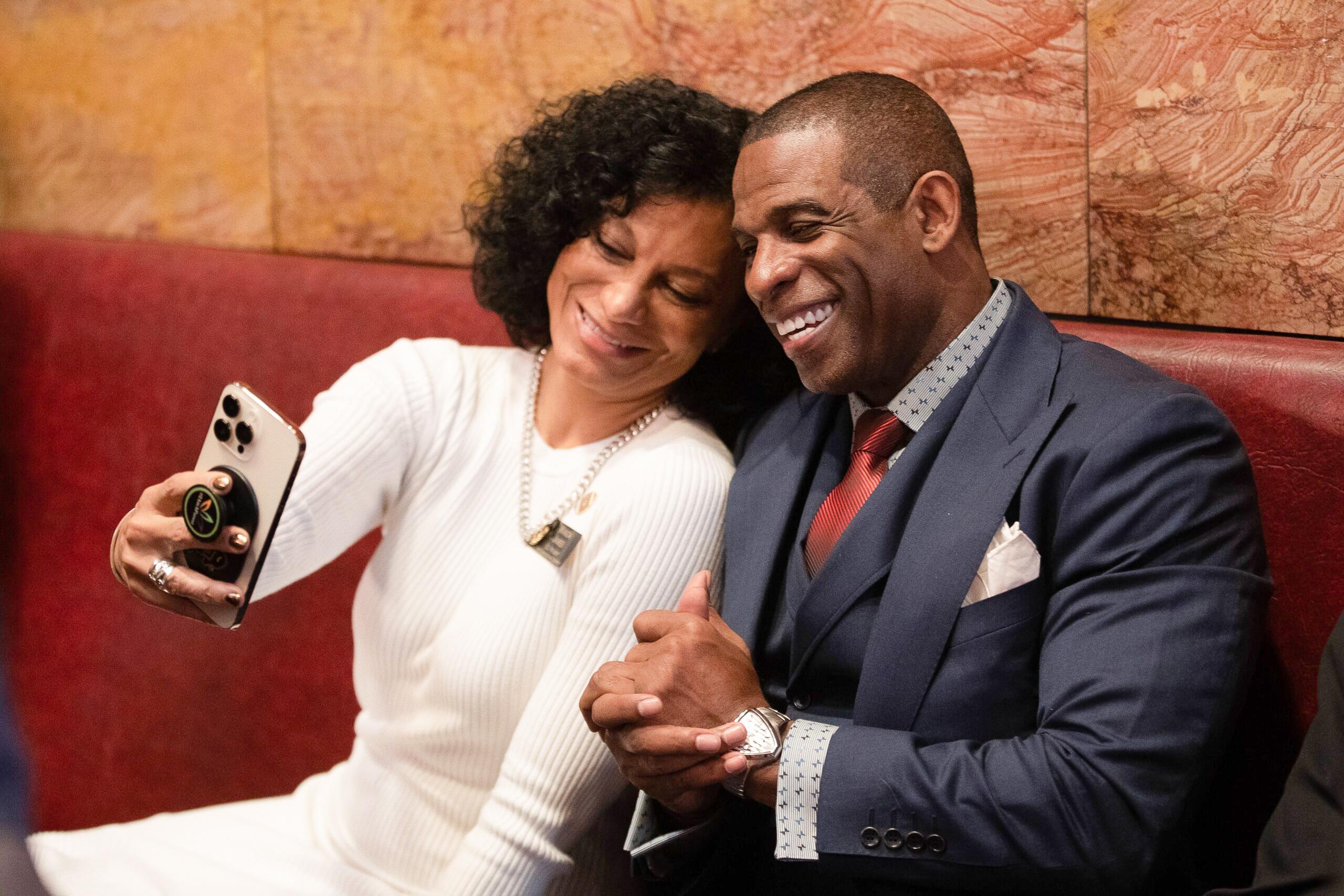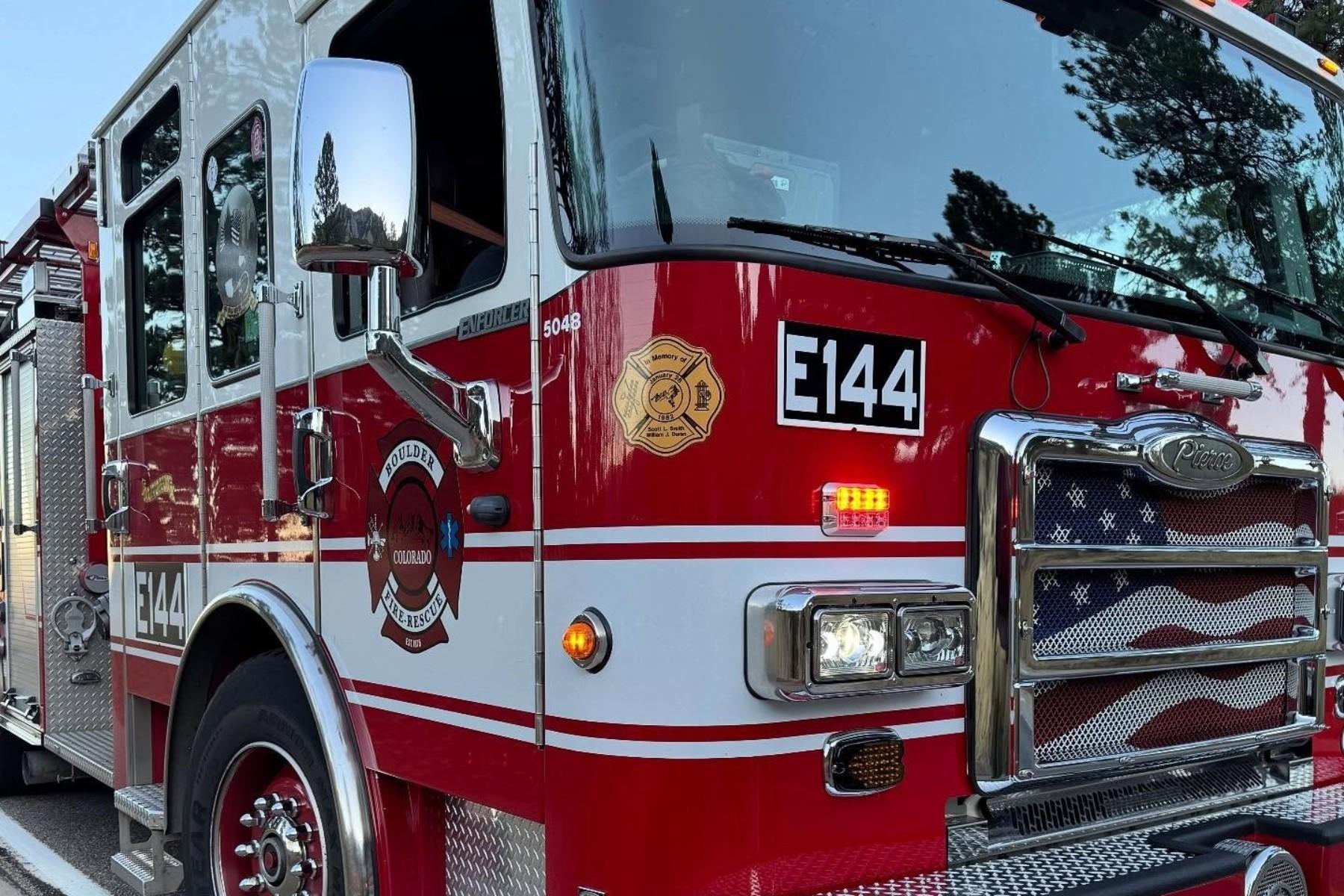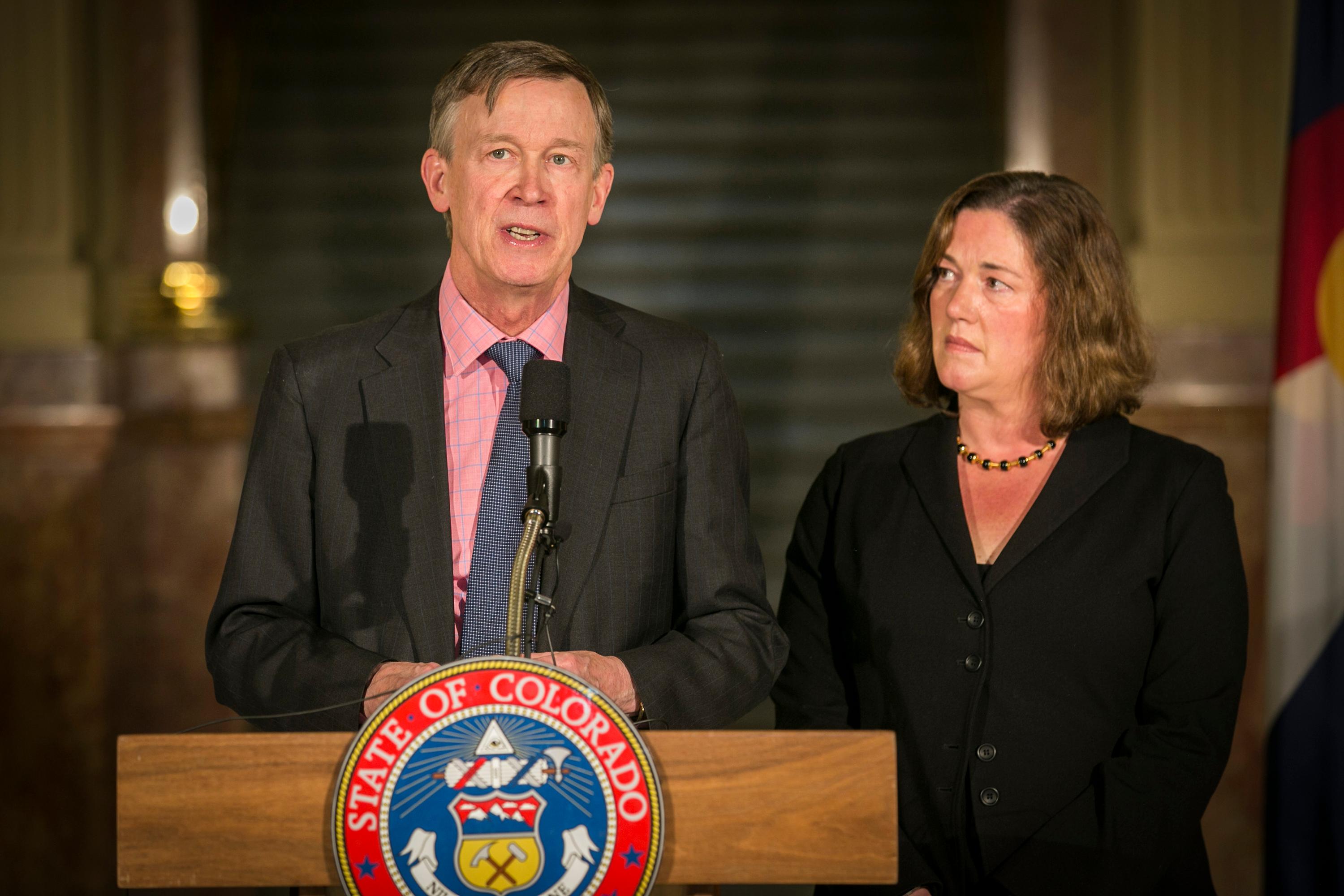
The enthusiasm over the University of Colorado’s football team and its new coach, former NFL and MLB phenom Deion Sanders, has brought attention to the experience of being Black on CU’s Boulder campus. The widespread support Sanders and his Buffs players have received contrasts with the experiences some students of color, mostly non-athletes, say they’ve experienced while attending the school. Coach Prime mania has unfolded in Boulder at a time when two CU graduate students recently circulated a so-called “Shadow Report,” a 48-page letter detailing a racially hostile climate that led to four faculty members of color in the School of Education saying they felt pushed out and forced to resign. The professors cited microaggressions, misogyny, and the “weaponization of white fragility” as the source of their frustrations.
Colorado Matters host Chandra Thomas Whitfield recently sat down with Wanda James, an alum, a longtime supporter of the school, and the first Black woman to serve as a CU Regent in 44 years. They spoke about what CU is doing to help make the university more welcoming and inclusive to diverse students, especially on its flagship Boulder campus.
This transcript has been lightly edited for clarity.
Chandra Thomas Whitfield: What has it been like for you to watch the so-called “Prime Effect” sweeping the nation?
Wanda James: Wow, there is an amazing sense of pride, and I kind of want to jump in. I just got back from the CU versus UCLA game in Los Angeles and honestly never seen anything like it. So obviously we have a smaller part of the Rose Bowl where we were playing, and I would say that the CU portion of the Rose Bowl was 45% Black with people wearing all the prime gear, all the CU gear. I mean, in 40 years I have never seen anything like this. Wow. Wow.
You've been very vocal about how great you personally think CU is, which you often refer to as the Harvard of the Rockies. What was your experience like as a Black student when you attended and how would you say it has evolved over time?
James: You can talk to generations of Black alumni and the story for, I would say 98% of them, is probably about the same for me. When I was there, it was a little bit different because I was part of the Naval ROTC structure there. So what Naval ROTC did for me was it took me out of a school of 30,000 students and people and brought me into a smaller, tight-knit family of 150 to 200 students with a dedicated staff of people who it was in their best interest to ensure you graduated. So it was a very different experience than just being left on this campus to deal with all the things I think students deal with. That being said, I was still the only Black person in naval ROTC and I joined the military at the time because so many of my Black friends did not come back to school in 1982 after our first year.
So it felt pretty lonely. And so the military was something that was known to me, so I was comfortable there. But if you ask generations of Black students going to the University of Colorado, it's a lonely place. A lot of them were met with straight-up racism. We have conversations that have been had that the chief of police at the time in Boulder went and took the football roster and said he was going to use this for identification for people. So I mean there was that kind of ridiculousness happening on campus back in the mid to late eighties and probably in the sixties and the seventies as well. So what has the evolution done? Probably not a lot until this year.
Now you've said that you genuinely don't understand why more people of color don't choose to attend, but as you've reflected on that, why do you think it's that way now?
James: I believe that the reason that we have not seen a lot of Blacks and Latinos at the University of Colorado, one is a belief that most families can't afford it. People believe that it's one of the more expensive schools in Colorado, so they don't even apply. Secondly, I believe being located in Boulder, Colorado, the idea of what people have of Boulder, Colorado is that it is unwelcoming to people of color, which it is. Boulder, while it's a liberal city, it's a very wealthy city. I believe that the people in Boulder believe that they are welcoming and that they don't understand what they do to make people of color feel unwelcome there in a lot of cases. In some cases, I'm sure that they do know what they’re doing.
What do you think people are doing that may, in your view, unconsciously be unwelcoming to Black and Latino students?
James: Because of the low numbers, there's really nowhere you can go in the city of Boulder where you are met with people that look like you. So it does feel very unwelcoming. It does feel unwelcoming in the hotels. It does feel unwelcoming in the restaurants. It definitively is a rich white society in Boulder and that feeling is permeated, I think, through the activities that are there, through who gets hired in service roles, just who you see in Boulder and you just don't see a lot of diversity in Boulder at all.
Well, of course, Coach Prime came from the deep south up to Boulder and there's been a lot of talk about Black culture. I've heard that clubs are playing more, shall we say, different music. I've heard about certain cuisines being offered at the restaurants.
James: Grits! They got grits, girl!
Sure. The grits, yes. So is it that the offerings there do not reflect being inclusive like in terms of music or the type of events happening there and that type of thing?
James: One hundred percent. I mean, I don't know that this is entirely true any longer, but I mean the joke has always been you can't get your hair done in Boulder. So you have a town of 65,00 or 70,000 people and there is nobody to cut your hair as a person of color.
So the people of color are having to drive to Denver to get their hair done?
James: Everybody is driving to Denver. So it's those types of things that we just don't see in Boulder. Now that being said, what happens when you're able to bring on, and I don't know what this coach Prime effect is in sociological terms because it has definitively changed. Like you said, the music scene, people are looking at different types of food. And once again too, you've got to understand it's not just Coach Prime that came to Boulder, right? It's Coach Prime's, coaching staff, the–
The Coach Prime machine.
James: Exactly. Which is their family and their significant others and their children. So the Black population in Boulder, I dunno quadrupled in the last year probably, right?
With Coach Prime?
James: Right. So when you look at what's happening with Coach Prime right now for every CU home game, they're looking at $20 million to the city of Boulder. The parking lots are packed, the restaurants are packed, fast food is packed, people are coming, the hotels are packed. So it's amazing and it's bringing people of color. The USC game brought people of color homecoming. I'm hearing so many alums saying that they're coming back this year, Black alums saying that they're coming back this year. So there is a phenomenon that's happening that's bringing people there. And once again, when you see more people that look like you feel more comfortable in a place. So my assumption is people are feeling more accepted in Boulder right now.
Well, I find that interesting because here at Colorado Matters, we covered the opening of The CAAAS, which is CU Boulder's Center for African and African-American Studies, and the head of that, Dr. Reiland Rabaka, mentioned in raising funds for that program that they had reached out to many Black alums who said, ”Why would I give money to a school that was so unwelcoming and unsupportive to me?”
James: Exactly. And like I said, I think if you talk to generations of Black alums, you will hear that time and time and time again. That has definitively been a feel at Boulder for generations, not for the last 10 years, the last 20 years, but for generations of CU alums once again, we're hoping that this Prime effect, for lack of a better word, is something that actually brings us all back. Because here's the thing, there are a good number of Black alums from CU Boulder.
I know a few myself.
James: Absolutely. And so if we make an effort to come back and come back in numbers and in mass we'll see each other, we'll run into each other. And quite frankly, that's what's been happening at the football games. I ran into Jay Humphreys at one of the games, I ran into former Denver City Council member Albus Brooks at one of the games. I saw former CU football player Walter Stanley at one of the games. You're running into people that you haven't seen in decades. And so they're all coming back, we're having fun and I think it could be a new resurgence for people of color, for Black alums, and more importantly, to also start to attract more staff and faculty of color, so Black and Latino.
I asked this of CU's President Todd Saliman and now I'm asking you; How does CU make this moment with Coach Sanders and the Buffs more than a sports moment? What opportunity do you see for growth and change right now?
James: It's already so much more than a sports moment. I mean, we left it being a sports moment after the Nebraska game. How so? By exactly what we're seeing right now. Now I will say because of all of the craziness with the U.S. Supreme Court, I don't know how many students that happen to be Black and Latino have applied as of yet, but meaning applied to be students at the University of Colorado. But I do know that we've had a 40% increase of applications coming into the University of Colorado. I am hopeful that a good number of those, or a larger percentage than what we have seen in other classes, is a part of that. Once again, we're seeing commerce happen in the city of Boulder. We're seeing Black and Latino people visit the city of Boulder en masse with lots of numbers. So hopefully, knock on wood, people come and they see that it's a great place to be and it outlasts the “Prime era” and hopefully we keep Prime around for a bunch more years.
So you were referring to the affirmative action decision from the U.S. Supreme Court, which outlawed admissions based on race. Does that mean you can no longer see the demographics of your applicants anymore?
James: Correct. There is not a box on any application now that says Black, white, native American. You can tell the story in your written part of the application how race was important to you and your family, but you can't say that I was Black and check that box. Once you are a student, we can ask you if you want to identify as self-identify self-identify, that's fine after that fact. So that would be how we would hopefully, knock on wood, be able to figure out what the diversity of our campuses look like.
In our conversation. You've really emphasized the need for more representation at every level, students and people who work at cu. Does the Supreme Court's affirmative action decision make that more difficult?
James: It absolutely makes it more difficult and let's be real here about the nefarious nature of what the Supreme Court did. They literally came out and said that America no longer has a race problem and we don't have to monitor or measure how well we're doing with race. What we do know is Blacks and Latinos are not doing well in this country. So by not being able to measure things, we can't fix things. So that's what that affirmative action ruling effectively does. Yes, it makes it very difficult and it also tells students of color, Black and Latinos specifically, that they are not wanted at universities and higher ed.
You brought up the desire for more Black and brown students to apply. What is CU doing to recruit and retain these students and what do you want to see done?
James: There's two parts to this. One is recruit and the other is graduate. I'm more excited about the graduation number than I am about the recruiting number. However, the higher the recruiting number, the higher the graduation number, we now have a metric that is helping us look at all of the high schools of which we were recruiting from and what that body of students looks like that matriculate into cu. So that's another tool that we can look at to ensure that we are looking at high schools that have a high percentage of Black and Latino students. The other really big thing that we're looking at is really just demographics as well too. When we look at DPS, Denver Public Schools they are predominantly Latino. So, when we start to look at a strong public education system, K through 12 is very important to make sure that those students are going from the 12th grade into higher learning. So we're making sure that all of that is happening, but I will tell you this, this is the importance of having leadership that is Black and brown at the table. This has been one of the biggest issues with CU Boulder for 43 years. It has been 43 years since the Democrats have had control of this Board of Regents. Jimmy Carter was the last time that Regents had a democratically controlled board.
So we have gone through, once again, not beating up on the Republicans here, but diversity has not been their strong point. Now we are enacting some of these goals and inclusion policies that we want to see happen to make sure that we are looking at students of color or in the places where students of color would be coming from.
How do you think the board's makeup affects the work that you're trying to do?
James: Oh, tremendously. Oh my goodness. I mean, it's incredible what can happen when you have a president who leans left and a board that leans left because these conversations now are not just conversations. We're putting actionable items behind that.
And I believe when we spoke before, you also felt that the current board makeup represents more of the demographics of Boulder in terms of political thought.
James: So the Board of Regents, we oversee all four campuses. So Boulder, Colorado Springs, Denver, and Anschutz Medical Campus. So ironically, if you look at Boulder, obviously a definitively liberal four-year university as opposed to UCCS, another four-year university, which has a high military student enrollment, a military community that surrounds it, and is definitively more right-leaning. And then you have Denver, which represents a little bit of both, quite frankly. So when we're looking at how the board makeup is right now, yeah, we have a board that is more left-leaning and looking at what I would consider to be more liberal policies. But I will say though that the Republicans on our board have been very much socially aware and to the best of their abilities, have been very supportive of a lot of the things that we're doing on the board to make sure all students count and all students have opportunity.
Continuing this discussion about the board, you recently updated your diversity and non-discrimination policy for the first time since 1973. Was that a meaningful step to you, and if so, what difference do you think it could make?
James: So I was really happy to see CU Regent Ilana Dubin Spiegel take this on in the governance committee. She's the chair of governance and this was important to her. And it was extremely important to me to see this policy updated. The policy we made, I believe, is a lot stronger. We removed a lot of words and verbiage because words have power that were acceptable in 1973 that obviously needed to be changed as they are now. But we also put in their mandates and goals. So that diversity does have to be reported now by each campus so that we can take a look at what's happening to be able to, we don't have diversity goals, but to be able to show that we are inclusive and open to all peoples. And it was a great exercise to actually go through because obviously, all peoples are more than just Black and Latino. It is also LGBT and making sure that students that have certain disabilities are also made welcome on campus. So there are so many things that we worked through on that diversity policy that we're really proud of.
So what difference do you think it'll make? Is it just more awareness? Is it just that it's in the forefront now?
James: More awareness and in the forefront. And once again, those words have power. And I think that that's a really big piece to all of this, that when things become in the forefront, we start to see more action on them. And the fact that diversity is at the table now that people are discussing it even in negative situations where people are trying to remove diversity, I believe that the other side, our side now, has a good argument as to why this is important.
So the head of the School of Education recently resigned following a scathing letter being circulated about four women of color in that department who felt they were pushed out and who said they experienced a hostile work environment. What efforts are underway, including with you and your fellow regents to investigate, respond, and address those claims?
James: So we are all aware of those claims and the letter, all the regents, Todd Sallman, as the president of the university will be reporting back to the Regents to get to the bottom of exactly what it is that has occurred. When I see letters like this, I am well aware as a Black woman to read between the lines and look at all of the issues as to why these four professors are no longer there. My guess is each situation may be somewhat different potentially, and I do not have all the information yet as to what happened with each individual professor. And the other thing that's interesting too about being in higher ed and being a regent as well, is these are, remember we're the third largest employer in the state of Colorado, so these are employees that also have rights and right to privacy and things that you can't just go around discussing about employees. So we also run into those types of situations. So I don't know what all of the facts are behind those four women leaving, but when I read between the lines, once again as a Black woman, I would not be surprised that there are times when Black women feel very alienated, especially in higher ed and potentially at the University of Colorado.
Now, have there been any efforts to engage the students who wrote the letter or anything or any particular formal investigation process?
James: Yes. The School of Education is going through the process that they have to go through, which is why the regents are giving them space to finish that and to let us know what it is that they can legally let us know as to what that situation looks like. My goal in all of this is to look at it and to ensure that the reasons are not systemic.
What's being done to recruit, retain, and support Black and Latino faculty and staff? Is there anything you think should be done more in that area?
James: Oh my goodness. We could write a whole book on all of the things. This is the core of the issue that I believe is the issue that we have at the University of Colorado is because diversity doesn't happen in a vacuum, inclusion does not happen in a vacuum. And in a lot of ways, we can't keep blaming the students for not wanting to go to the University of Colorado if we haven't done a good job of giving them a place where they have professors and teachers and people guiding their minds as they go through this process who look like them. So yeah, we've got to start with our faculty and staff. We've got to get more Black and Latino faculty on tenure track. More importantly, we're doing a search right now for a new chancellor. I am openly expecting to see faces of color in that final search group that's coming through.
And you are referring to the openings for chancellor at UCCS and also at CU Boulder?
James: One hundred percent.
Now, in that process, do you think diverse candidates should be prioritized for filling these positions? And if so, what are you and your fellow regents doing or going to do to ensure that happens
James: Once again and learning higher ed, for all of this, there is more process in higher ed than. I think that's probably the most shocking thing about being a regent is all the processes that are in place to manage a university system this large. So it all comes down to the very beginning, right? You can't put bad information in. You're going to get bad information out. So the search committee and who is on that search committee working with the search firm that ultimately gives us the pool of people that the president will be able to choose from has got to be diverse. And in both cases, I've been told and aware that the search committees are extremely diverse, diverse in thought, diverse in age, diverse in gender, diverse in sexual orientation. So once again, being at the table, having a left-leaning board that feels like diversity is important, is the very beginning of ensuring that we have the right people in place to ensure that we are choosing diversity.
Can you give us some more specific examples of what should be done in the area of recruitment, retention, and support of diverse faculty members, faculty, and staff members?
James: Of course. I mean, once again, we look at, and I'm going to forget who coined the phrase, but it's pretty famous. It's all over LinkedIn, but the “pet to threat ideology.” So people get very excited when we bring in a Black or Latino and they're very supportive. And then when that Black or Latino person starts talking about the issues or the shortfalls or the things that we're not doing to make things comfortable, then you go from what we call from pet to threat. Now you become the issue to work with. You are hard to deal with, you're hard to feel comfortable around, and this is why you can't recruit people who happen to be Black and Latino one at a time. You've got to be able to bring in more than just one person so that people do feel supported in the roles that they have.
So kind of feeling like they have a cohort to be a part of, to support them, and to engage with?
James: Exactly. The idea that race doesn't matter to people is just ridiculous. Everybody wants to feel like that there is somebody that relates to them or that they have something in common with, and I always put this in terms of women. How do you think the first woman felt in the workplace of all men? If you went to work today and everybody in here was a man, no matter how nice the men were to you, you would still feel a little bit alienated. Same premise. If you happen to be the only Latina or the only Black person, it is the same premise. So that's why it's so important to make sure that top to bottom, we look at diversity all the way through, and it's not just that one diversity hire and patting ourselves on the back and say, oh, yeah, we did that. No, it's continuous.
As we wrap up, Wanda, what's your vision for the future for CU and for CU Boulder in terms of DEI and making the university more inclusive and welcoming to all, including Black and Latino students, staff, and faculty?
James: Honestly, you just laid it out right there. It's a matter of having more opportunities to have more students on campus and if we want more students on campus that means we have to have more staff, faculty, and tenured faculty that are training these students so that they feel like they want to come to see you and that they have a safe place to be at CU.. And then to have organizations such as the CAAS, the Center for African and African American Studies, which is an amazing place for students to gather, to listen to music, to talk, to meet with professors and to get tutored, and to be with each other. I think that that's an important place. Once again, just as a sorority house may be very important for women on the campus to be able to go to a house where you know that all your girlfriends are at and a place where you feel safe, where you can get your hair done or do whatever it is that you want to do in a sorority.
There’s still that importance for Black and Latino students to have that type of space as well. On top of that, we have to have more Black and Latino leadership at the table. Right now, we have one Black president, one Black vice president at the University of Colorado System office. That's not good enough. We have one Latino vice president that's not good enough. We have numerous people of color that do outreach, but that's not good enough. And we can't just take all of the people of color and put them in outreach and say, “Oh, we've done our job.” It must be once again all the way through. So every level must be inclusive, every level must be welcoming. And that's what my hope is for CU Boulder and for Boulder itself, because they're both amazingly lovely, beautiful places to be. And I honestly believe that the more Black and Latino faces that we see on campus and in restaurants, the more enhanced all of the beauty is going to be for Colorado.
I'm curious, what lesson would you share with any big institution that wants to seriously become more inclusive right now? What have you learned in your many roles that shows you a real path to inclusivity and belonging?
James: This is so easy, right? If you embrace diversity, you're going to make a ton more money. I mean, our stadium is sold out. We have sold out every game this year. The swag is up, I don't know, 988 percent or something, or something ridiculous, right? Our applications are up 40 percent. People are spending more money in Boulder. We've got more tourism coming to Colorado. Coloradoans are proud. Black alums are proud. CU Boulder is proud. I mean, there's no downside when you embrace what is diversity, right? And stop looking at the idea that Black and Latinos are somehow negative to the process when it couldn't be further from the truth. And it's not just Boulder that we're seeing this in. We see when we embrace diversity in corporations, they make more money. So embrace diversity, make more money, and have a better experience. I just don't see the downside to any of this.
- Ballroom Culture: From fierce and fabulous runway-style competition to creating safe spaces
- Looking for a diverse Santa to take a picture with? Here’s where you can find them in the Denver area
- The search for diverse Santa and why representation matters
- ‘Lasagna Love’ shows that little things can make a big difference









